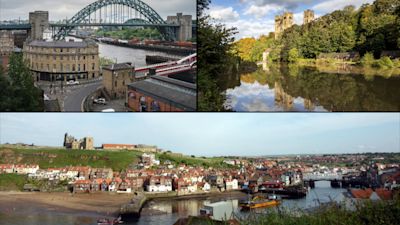New report shows a quarter of England's tourism spending is in the North

A new report shows that 25% of all England’s tourism spending takes place in the north of England, with the North East and North Yorkshire key contributors.
Newcastle is listed among the top cities people chose to visit, alongside Manchester, Leeds, Liverpool and Sheffield.
North Yorkshire ranked third in the UK for the share of economic output attributable to tourism, bettered only by Cumbria and Cornwall.
The Transport for the North report, which it says is the the first comprehensive pan-Northern study of the visitor economy and its relationship with transport, shows:
In 2019, the North accounted for 25% of tourism spending in England – and that goes up to 37% if London is excluded.
The total visitor spend across the North in 2019 was estimated at £21.05 billion – with a total net GVA contribution from that of £12.33 billion.
The visitor economy provides jobs for 579,000 people and 39,000 businesses – accounting for 8% of total employment in the North – with many more jobs supported indirectly.
April and August are the most popular months to visit the North for both domestic and international visitors.
The Chief Executive of Transport for the North, Martin Tugwell, said the report paints a "clear and exciting picture".
He added “This research has wider implications. The transport challenges those coming into our region face are the same for our residents and businesses too, particularly in rural areas, so the insights from this work will help build our cases for all manner of projects.
“As this year’s “staycation summer” has demonstrated, our region has a lot to offer holidaying Brits, so we must ensure we do everything we can to encourage them to keep coming back.
Connectivity issues
The report also highlighted issues with public transport and connectivity across the north of England.
It suggests that many residents identified a number of barriers to using public transport for visitor journeys, including high cost of travel/poor value for money relative to using a private car, confusing ticketing options, and restricted levels of service particularly in the evenings and on weekends.
It also cited poor connectivity in rural areas, unreliability of services, and different accessibility and inclusion issues particularly for families, passengers with mobility or other health issues, and those travelling with bikes or heavy luggage.
A series of recommendations have been made that are intended to make transport easier to use across the region, including more reliable and joined-up services that reduce journey times.